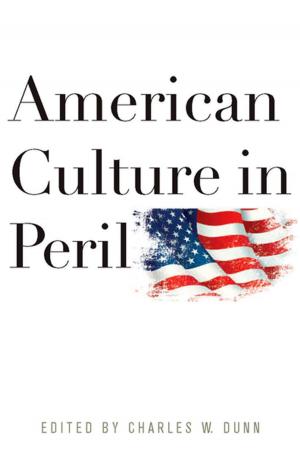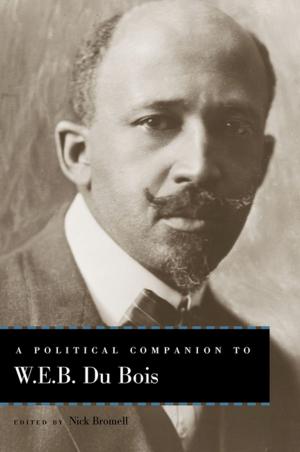Freedom and Solidarity
Toward New Beginnings
Nonfiction, Religion & Spirituality, Philosophy, Political, Social & Cultural Studies, Political Science, International, International Relations| Author: | Fred Dallmayr | ISBN: | 9780813165790 |
| Publisher: | The University Press of Kentucky | Publication: | November 3, 2015 |
| Imprint: | The University Press of Kentucky | Language: | English |
| Author: | Fred Dallmayr |
| ISBN: | 9780813165790 |
| Publisher: | The University Press of Kentucky |
| Publication: | November 3, 2015 |
| Imprint: | The University Press of Kentucky |
| Language: | English |
The prevailing Western paradigm is modernity: a model focused on individual liberty, secularism, and the scientific control of nature. This worldview emerged from the break with the medieval and classical past and advanced a philosophy in which the solitary mind opposes the rest of the world. Although there is a simple appeal in this binary structure, history has shown that it is neither socially nor politically innocuous.
In Freedom and Solidarity, noted political theorist and humanist Fred Dallmayr seeks to bridge the gap between the self and the outside world. Drawing on new scholarship and his work with the World Public Forum Dialogue of Civilizations, a global, nongovernmental organization of distinguished thinkers, he challenges dominant worldviews and heralds new possibilities for political thought and practice. Dallmayr argues that while we need not reject all the values of modernity, it is imperative that we resist the simplifications inherent in dualism and fundamentally reassess the notions of freedom and solidarity.
Engaging a breathtaking array of influential thinkers, including Friedrich Nietzsche, Martin Heidegger, Henry David Thoreau, Gandhi, Albert Camus, John Dewey, and Dimitry Likhachev, Dallmayr explores the possibility of a transition from the modern paradigm -- a mode of life presently in decay -- toward a new beginning in which freedom and solidarity can be reconciled, making it possible for humanity to flourish on a global scale.
The prevailing Western paradigm is modernity: a model focused on individual liberty, secularism, and the scientific control of nature. This worldview emerged from the break with the medieval and classical past and advanced a philosophy in which the solitary mind opposes the rest of the world. Although there is a simple appeal in this binary structure, history has shown that it is neither socially nor politically innocuous.
In Freedom and Solidarity, noted political theorist and humanist Fred Dallmayr seeks to bridge the gap between the self and the outside world. Drawing on new scholarship and his work with the World Public Forum Dialogue of Civilizations, a global, nongovernmental organization of distinguished thinkers, he challenges dominant worldviews and heralds new possibilities for political thought and practice. Dallmayr argues that while we need not reject all the values of modernity, it is imperative that we resist the simplifications inherent in dualism and fundamentally reassess the notions of freedom and solidarity.
Engaging a breathtaking array of influential thinkers, including Friedrich Nietzsche, Martin Heidegger, Henry David Thoreau, Gandhi, Albert Camus, John Dewey, and Dimitry Likhachev, Dallmayr explores the possibility of a transition from the modern paradigm -- a mode of life presently in decay -- toward a new beginning in which freedom and solidarity can be reconciled, making it possible for humanity to flourish on a global scale.















